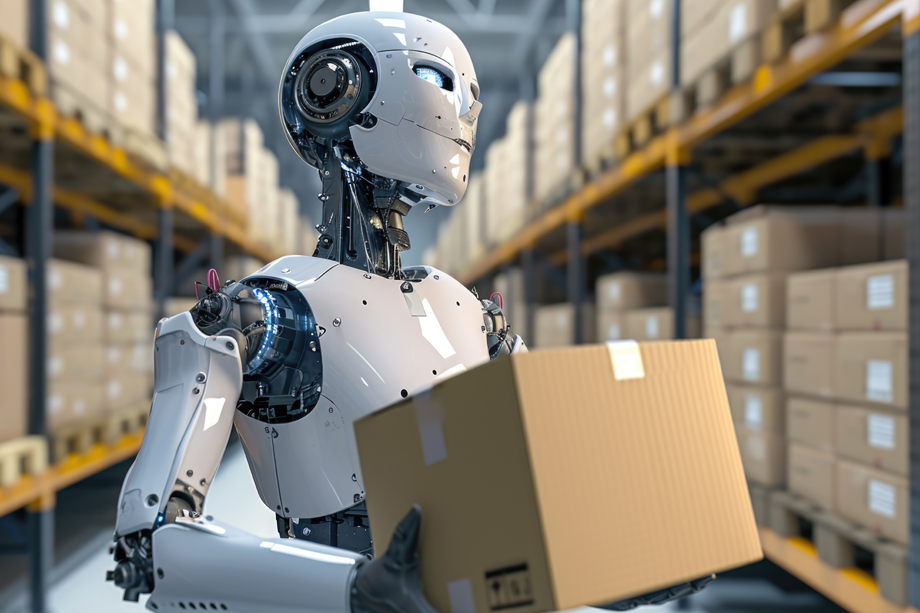The Role of AI in Supply Chain Management in 2024
In 2024, AI in supply chain management is transforming the way businesses operate. With advanced artificial intelligence technologies, companies can streamline their processes, reduce costs, and improve overall efficiency. From demand forecasting to inventory management, AI in supply chain management 2024 is revolutionizing logistics across industries. In this article, we will explore how AI is changing supply chain management and why it’s essential for business success.
Why AI is Critical for Supply Chain Management in 2024
Supply chains are the backbone of modern businesses, connecting suppliers, manufacturers, distributors, and customers. However, managing such complex networks can be challenging. That’s where AI in supply chain management comes into play. By automating repetitive tasks, optimizing decision-making, and providing real-time data, AI helps businesses improve the efficiency of their supply chains in 2024.
Enhancing Efficiency with AI
The integration of AI in supply chain management allows companies to automate tasks like inventory tracking, demand forecasting, and shipment scheduling. This automation reduces the time and effort required, leading to more accurate decisions and cost savings. By 2024, AI-driven solutions have become an industry standard for improving supply chain performance.
Reducing Human Error with AI
Human error has always been a common cause of inefficiency in supply chains. With AI-driven systems, the risk of human error is greatly reduced. AI automates manual tasks and provides real-time data, ensuring that operations run smoothly and reliably. In 2024, AI-based solutions help businesses avoid costly mistakes.
Improving Demand Forecasting with AI
Accurate demand forecasting is crucial for maintaining a balanced supply chain. Traditional methods often result in overstocking or understocking, both of which have negative impacts on revenue. By using AI in supply chain management 2024, companies can analyze historical data, market trends, and consumer behavior to forecast demand more accurately.
How AI Improves Forecasting Accuracy
AI-driven demand forecasting takes into account various factors such as economic indicators, social media trends, and weather patterns. This approach helps businesses better predict changes in demand and adjust their operations accordingly. In 2024, AI is helping companies avoid costly mistakes by providing more precise forecasts.
AI in Retail Supply Chains
Retailers are among the first to adopt AI in supply chain management to improve inventory planning. AI algorithms predict which products will be in demand during specific periods, helping retailers avoid overstocking or understocking. By implementing AI, retailers ensure they have the right amount of stock available in 2024.
Optimizing Inventory Management with AI
Poor inventory management can lead to lost sales and increased storage costs. AI helps businesses automate their inventory management processes, providing real-time visibility into stock levels and automating the reordering process. In 2024, AI in supply chain management is helping businesses maintain optimal stock levels and reduce operational costs.
Automating Inventory Reordering
AI-powered systems continuously monitor inventory levels and automatically place orders when stock levels fall below a certain threshold. This automation ensures that businesses never run out of essential products and don’t overstock inventory. In 2024, AI-based inventory management is becoming an essential tool for businesses worldwide.
Balancing Stock Levels with AI
Maintaining the right stock balance is critical for business success. Overstocking leads to unnecessary storage costs, while understocking results in missed sales opportunities. AI helps businesses strike the right balance by providing real-time data on stock movements, allowing them to make informed decisions about reordering in 2024.
AI and Supply Chain Transparency
Transparency is a key factor in building trust with suppliers and customers. In 2024, AI in supply chain management is helping businesses achieve complete transparency by providing real-time insights into the location and condition of products throughout the supply chain.
Combining AI and Blockchain for Transparency
By combining AI with blockchain technology, businesses can track and verify every step of the supply chain, ensuring transparency and accountability. Blockchain offers an immutable ledger, while AI analyzes the data to identify potential issues and inefficiencies. Together, these technologies help businesses ensure that products are delivered on time and in perfect condition.
Improving Collaboration with Suppliers
AI not only improves transparency but also enhances collaboration with suppliers. By sharing real-time data, businesses can proactively address potential delays or issues with inventory. This proactive approach helps build stronger relationships with suppliers and ensures a smoother supply chain operation in 2024.
AI and Sustainability in 2024
As businesses focus on reducing their environmental impact, AI in supply chain management is helping them achieve greater sustainability. AI-powered systems optimize transportation routes, reduce emissions, and minimize waste, contributing to greener supply chains.
Reducing Carbon Emissions with AI
AI helps businesses reduce their carbon footprint by optimizing transportation routes and minimizing fuel consumption. By analyzing factors such as traffic, weather, and fuel efficiency, AI-driven tools select the most efficient routes, reducing emissions and fuel costs in 2024.
Minimizing Waste in the Supply Chain
AI also helps businesses reduce waste by optimizing production processes and resource allocation. AI-powered systems analyze product life cycles and identify opportunities for waste reduction, leading to more sustainable operations. In 2024, businesses that implement AI-driven solutions are making significant strides in sustainability.
Challenges of Implementing AI in Supply Chains
While the benefits of AI in supply chain management are clear, there are challenges to implementing these systems. High initial costs, data integration issues, and the need for skilled personnel are some of the barriers businesses face. However, as AI technology continues to evolve, these challenges are becoming easier to overcome.
Overcoming Integration Challenges
One of the main challenges businesses face is integrating AI with their existing supply chain systems. Many legacy systems are not designed to work with AI technologies, making integration difficult. However, by adopting cloud-based AI solutions, businesses can streamline the integration process and start benefiting from AI in 2024.
Training and Upskilling Employees
Another challenge is the need for skilled personnel to manage AI systems. To address this, businesses are investing in training programs to upskill their employees and ensure they have the expertise needed to manage AI-driven systems effectively. By 2024, businesses are expected to have in-house AI expertise to fully leverage the benefits of AI in supply chain management.
Conclusion: The Future of AI in Supply Chain Management
In conclusion, AI in supply chain management in 2024 is revolutionizing the way businesses operate. From improving efficiency to enhancing sustainability, AI offers numerous benefits for businesses looking to stay competitive. While there are challenges to implementation, the advantages far outweigh the risks. As businesses continue to adopt AI technologies, AI-driven supply chains will become the standard for industries worldwide.







